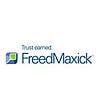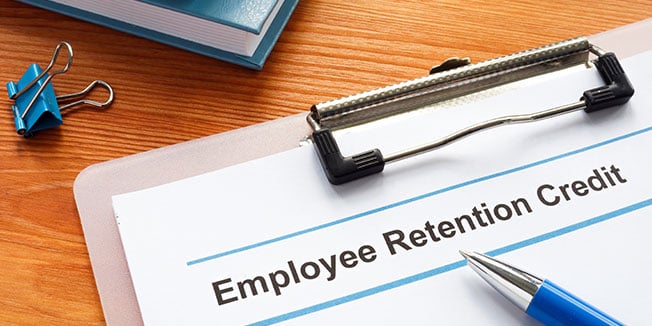
Freed Maxick Tax Team

As businesses navigate the complexities of the Employee Retention Credit (ERC), it's essential to have a clear understanding of the eligibility criteria, claiming process, and potential scams. In order to assist taxpayers, the IRS has recently updated the FAQ’s related to the ERC on its website. In this blog, we will share some key excerpts from those frequently asked questions about ERC and provide insights to protect businesses from falling victim to unscrupulous promoters. At Freed Maxick, we aim to empower our clients with intelligent and approachable guidance, ensuring they make informed decisions while maximizing available benefits.
Employee Retention Credit Eligibility
Q1. Is every business eligible for the Employee Retention Credit?
A1. No, not every business qualifies for ERC. Eligibility depends on specific facts and circumstances.
Q2. Who is eligible to claim the Employee Retention Credit?
A2. Eligible employers can claim the ERC for qualified wages paid between March 13, 2020, and December 31, 2021. To qualify, businesses must have experienced a full or partial suspension of operations due to a government order, a significant decline in gross receipts during 2020, or a decline in gross receipts during the first three quarters of 2021. Additionally, certain recovery startup businesses may claim the credit for the third and fourth quarters of 2021.
Q3. Who is not eligible to claim the ERC?
A3. Individual taxpayers who are not business owners, employees, retirees, household employers, and government agencies are not eligible. There are some other limitations and exceptions that apply to certain types of employers.
Qualifying Government Orders for the Employee Retention Tax Credit
Q1. What kind of government orders qualify my business for the ERC?
A1. To qualify, a business must have been subject to a qualifying government order related to COVID-19 that caused a full or partial suspension of trade or business operations. Examples include orders for business closures, shelter-in-place, curfews, or workplace closures for cleaning.
Q2. Can I rely on a recommendation or statement issued by a government authority to qualify for ERC?
A2. No, to claim the ERC, you must have been subject to a government order that fully or partially suspended your trade or business. Merely following recommendations or statements is not sufficient.
Q3. Is being subject to a government order enough to make me eligible for ERC?
A3. No, you must demonstrate that the government order was related to COVID-19 and resulted in a full or partial suspension of your trade or business.
Q4. What does it mean to be fully or partially suspended?
A4. The suspension status depends on your specific situation. For example, if all employees could telework, your business was not suspended. Similarly, supply chain issues alone do not qualify for ERC unless specific conditions are met.
Decline in Gross Receipts
Q1. How do I tell if I have the required decline in gross receipts to claim the ERC?
A1. To qualify, a business must have experienced a significant decline in gross receipts during 2020 or the first three quarters of 2021. The decline is generally measured by comparing gross receipts to the same quarter in 2019.
Recovery Startup Business
Q1. What is a recovery startup business?
A1. A recovery startup business is one that began operating after February 15, 2020, and had average annual gross receipts of $1 million or less for the three years preceding the claim quarter. It can claim ERC only for the third and fourth quarters of 2021.
Claiming the ERC
Q1. How do I claim the ERC?
A1. Eligible businesses can claim the credit by filing an amended employment tax return if they didn't claim it on their original return.
Q2. Is there a deadline to claim the ERC?
A2. Generally, for 2020 tax periods, the deadline is April 15, 2024. For 2021 tax periods, the deadline is April 15, 2025.
Employee Retention Tax Credit Scams
Q1. How do I know if I'm being scammed by an ERC promoter?
A1. Be cautious of unsolicited calls, promises of an "easy application process," large upfront fees, and claims of guaranteed eligibility. Scammers may omit crucial details and encourage hasty claims.
Q2. How can I protect myself from ERC scam promoters?
A2. Work with a trusted tax professional, request detailed worksheets, verify government orders, and avoid applying for the ERC credit unless you are legitimately qualified.
ERC Tax Credit Recordkeeping
Q1. What records do I need to support my eligibility for the ERC?
A1. Maintain records that demonstrate your business's suspension, decline in gross receipts, qualified wages, health plan expenses, and other relevant documentation.
The complete IRS Employee Retention Tax Credits FAQ can be found at: https://www.irs.gov/coronavirus/frequently-asked-questions-about-the-employee-retention-credit.
Understanding the Employee Retention Credit is vital for businesses seeking financial relief during challenging times. By staying informed and working with trustworthy professionals like Freed Maxick, businesses can navigate the ERC landscape with confidence and avoid falling prey to unscrupulous scams. Remember, making well-informed decisions ensures that you receive the benefits you rightfully deserve. For a complimentary discussion with one of our tax credit experts, please reach out to info@freedmaxick.com.